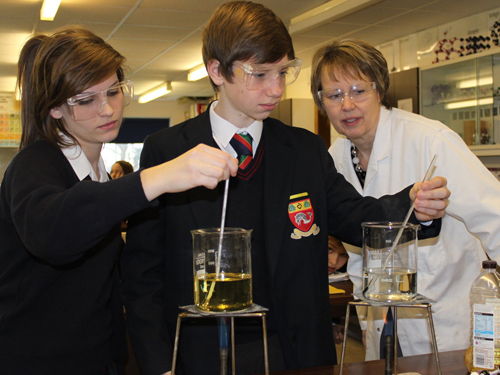
“It is right that teachers and schools are accountable to those with a stake in public education, and this requires assessments that are free from subjectivity. So we do need some form of standardized assessment. עם זאת, the United States pays a very high price for its insistence –unique among rich countries — of doing this almost entirely with multiple choice tests. Even with multiple choice tests, the best way to raise students’ test scores is to teach for deep understanding.” — דילן Wiliam.
Education policy reformers have focused on raising student achievement via a variety of strategies, including curriculum changes, increased use of information technology, changes in the way schools are governed or organized, and even getting rid of incompetent teachers. Leading British educationalist Dylan Wiliam believes the latter will not be effective since it will take too long to implement. His focus instead is on improving classroom practice now. He and his colleagues have developed a classroom program called Embedded Formative Assessment. Over the last four years, this program has been established in over 1000 teacher learning communities in the UK, אוסטרליה, ניו זילנד, Sweden and the U.S., with many claiming it is one of the most effective forms of professional development they have ever participated in.
Dylan Wiliam is Emeritus Professor of Educational Assessment at the Institute of Education, אוניברסיטת לונדון. In a varied career, he has taught in urban schools, trained teachers, directed a large-scale testing program, and served in a number of roles in university administration. בשנה שעברה, he was a featured guest on BBC 2’s The Classroom Experiment.
Professor Wiliam, can you give me the background to the development of your teacher/classroom practice project, הערכת מעצבת Embedded?
ב 2004, we published the main findings from a project with secondary school teachers in Oxfordshire and Kent, England in which we worked with them to help them develop their classroom assessment skills. When teachers prioritized regular assessment as part of daily classroom practice, their students learned 75% more than those taught by other teachers in the same schools. We concluded that working face to face with teachers, we could help them become better teachers.
When a teacher teaches, no matter how well he or she might design a lesson, what a child learns is unpredictable. Children do not always learn what we teach. That is why the most important assessment does not happen at the end of the learning — it happens during the learning, when there is still time to do something with the information. Our goal was to get teachers to pay more attention to what was being learned while the actual learning was taking place.
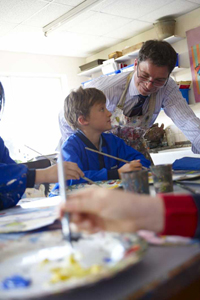
Why do you think your program would lead to significant improvement in the quality of teaching on a larger scale?
באמריקה, the focus seems to be on getting rid of incompetent teachers. I don’t believe that will be effective, and I also think it will take too long to implement. We have to find ways to improve classroom practice now.
There is no jurisdiction in the world that I know of that requires that teachers increase their competence every year. במקום זאת, teachers are required to show that they have endured a certain amount of professional development (and this is usually specified in numbers of hours) to continue to be employed, or acquired new qualifications, but they don’t need to get better at teaching.
Every teacher needs to be getting better — not because they’re not good enough, but because they can be even better. But every teacher needs to be getting better at something that will make a difference to their students, such as classroom assessment. How this is done cannot be scripted — each teacher will need to work out how to integrate assessment into their classroom routine. The “top down” bit is that every teacher needs to be getting better at something that will improve learning for their students, because schooling is a one shot deal for kids. What each teacher works on, עם זאת, is up to them — that’s the “bottom up” bit.
Once each teacher has committed to a particular improvement in their practice, they share their promise with a group of peers, typically between 10 ו 12 מורים. A month later they meet again and report back results. It’s a bit like the idea of Weight Watchers. Teachers tell us that having to report back to their peers on their promises keeps them focused on bringing about the change.
What are the main elements of the assessment process that teachers are taught?
The main elements of the program are an initial workshop, and then monthly meetings of groups of teachers, where they support each other in keeping to the promises they made. The five key strategies of classroom assessment are sharing learning intentions with students, eliciting evidence of achievement, providing feedback that moves learning forward, activating students as learning resources for one another, and activating students as owners of their own learning. The “Keeping Learning on Track” pack provides teachers with over 20 practical, ready to implement classroom techniques for each of the five strategies.
Where can schools find this product?
בארה"ב, materials to support these teacher learning communities are available from Northwest Evaluation Association in Portland, OR. The product, שקוראים לו “Keeping Learning on Track,” involves all the materials needed for schools to deliver an initial workshop and to run the 16 monthly follow-up meetings over the following two years.
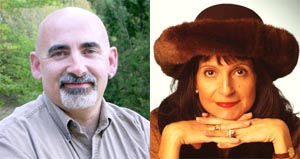

ב גלובל החיפוש לחינוך, להצטרף C. M. רובין ומנהיגי מחשבה מוכרת בעולם כולל סר מייקל ברבר (בריטניה), DR. ליאון בוטשטיין (ארה"ב), DR. לינדה דרלינג-Hammond (ארה"ב), DR. Madhav אוון (הודו), פרופ 'מיכאל Fullan (קנדה), פרופ 'הווארד גרדנר (ארה"ב), פרופ 'איבון הלמן (הולנד), פרופ 'קריסטין Helstad (נורווגיה), פרופ 'רוז Hipkins (ניו זילנד), פרופ 'קורנליה הוגלנד (קנדה), גברת. שנטל קאופמן (בלגיה), פרופ 'דומיניק לפונטיין (בלגיה), פרופ 'יו לאודר (בריטניה), פרופ 'בן לוין (קנדה), פרופ 'בארי McGaw (אוסטרליה), פרופ 'R. נטריגין (הודו), שרידהר ךאג'גופלן (הודו), סר קן רובינסון (בריטניה), פרופ Pasi Sahlberg (פינלנד), אנדריאס שלייכר (PISA, OECD), DR. דוד שפר (ארה"ב), DR. קירסטן Immersive Are (נורווגיה), קנצלר סטיבן ספאן (ארה"ב), איב Theze (Lycee Francais ארה"ב), פרופ 'צ'רלס Ungerleider (קנדה), פרופ 'טוני וגנר (ארה"ב), פרופסור דילן Wiliam (בריטניה), פרופ 'תיאו Wubbels (הולנד), פרופ 'מייקל יאנג (בריטניה), ופרופ 'Minxuan ג'אנג (סין) כפי שהם לחקור שאלות חינוך תמונה הגדולות שכל המדינות מתמודדות היום. גלובל החיפוש לחינוך עמוד קהילה
C. M. רובין הוא המחבר שתי סדרות מקוונות רבים קוראות שלהיא קיבלה 2011 הפרס אפטון סינקלר, “גלובל החיפוש לחינוך” ו “איך וויל אנחנו קראו?” היא גם מחברם של שלושה ספרים רבי מכר, כולל אליס בארץ הפלאות Real.
עקוב C. M. רובין בטוויטר: www.twitter.com/@cmrubinworld


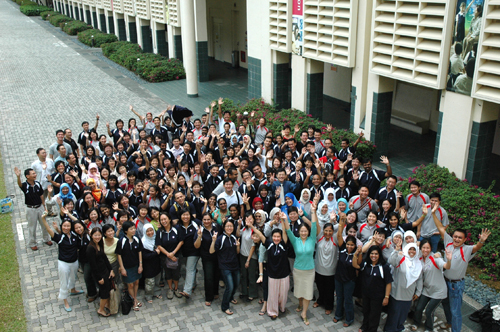
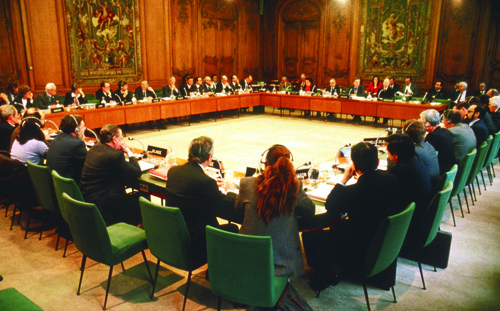
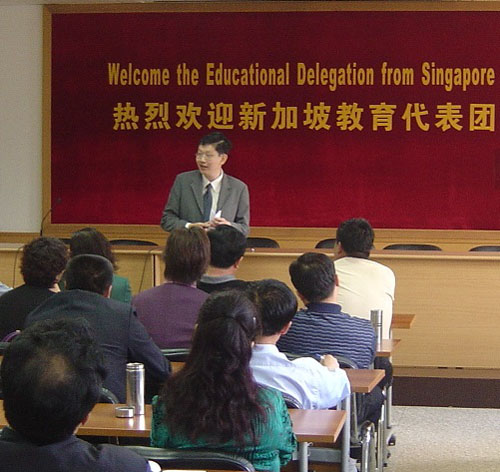
תגובות אחרונות